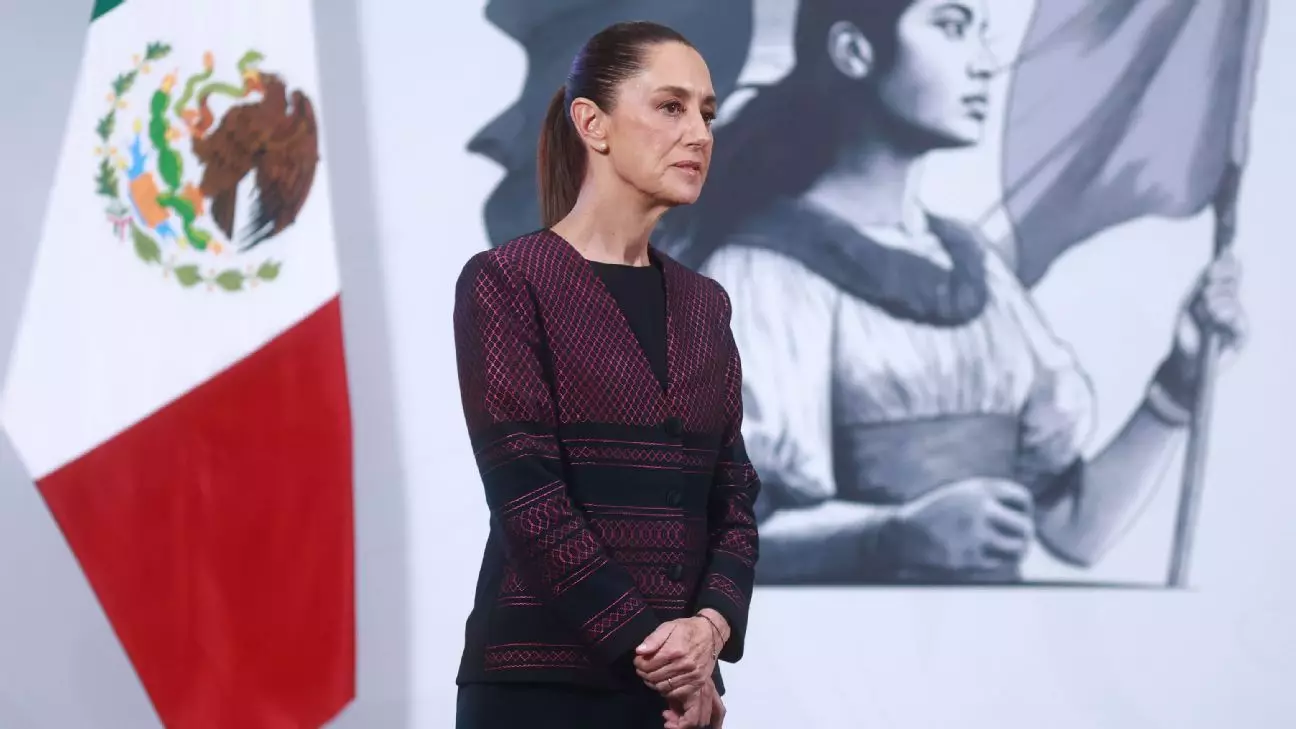In a striking intersection of sports and immigration policy, Mexican President Claudia Sheinbaum has made a poignant appeal to U.S. authorities ahead of an anticipated Gold Cup soccer match between Mexico and the Dominican Republic. Sheinbaum’s call to refrain from immigration enforcement at such an event is not just a matter of typical diplomatic courtesy; it encapsulates the urgency and complexity of the immigration debate that has intensified in the U.S. and beyond. This is not merely about sports; it is about the fundamental dignity and humanity of individuals swept into the mechanical gears of rigid immigration laws.
Sheinbaum’s concerns arose in the wake of aggressive enforcement actions reminiscent of the harsh policies during Donald Trump’s administration, which have reignited tensions in cities like Los Angeles. Her remarks highlight the threat posed by such tactics during occasions meant to unite people: sports events. The irony is palpable; instead of being a space for joy and companionship, these matches can unintentionally become battlegrounds for political skirmishes. It seems misguided for authorities to pursue undocumented immigrants in a context meant to celebrate cultural heritage and nationalism through soccer.
The Role of Enforcement in Public Life
U.S. Customs and Border Protection’s social media post, though deleted, served as a stark reminder of the prevailing sentiment among many conservative politicians who often conflate immigration enforcement with cultural or national security. Their approach is both counterproductive and harmful, as it alienates substantial populations while failing to address the roots of migration. Sporting events should serve as arenas of inclusion, not exclusion. In a landscape where every moment is scrutinized, the federal agency’s overt militaristic stance, even at a soccer game, shows a tendency to prioritize enforcement over community safety and cohesion.
Sheinbaum urged that Mexican nationals in the U.S. should feel safe attending such events, implying that their identities and contributions as hardworking citizens deserve recognition, not degradation. The disrespectful linkage of immigration enforcement with social gatherings only serves to fuel anxieties among immigrant communities and alienate them further from broader society. It inadvertently transforms soccer matches—a cherished communal experience—into a source of tension and fear.
Peacemaking amidst Provocation
In the face of divisive rhetoric, Sheinbaum’s measured language promotes peace rather than confrontation. The Mexican President pointedly dismissed provocations symbolized by demonstrations with Mexican flags, emphasizing that the Mexican government promotes peace. This attitude could provide a roadmap for not only diplomatic discourse but also for fostering safer environments in which immigrant populations can thrive.
The Gold Cup and subsequent matches in cities across the U.S. present an opportunity for cultural exchange and national pride. Fans should not be impeded by the looming shadow of law enforcement but should instead revel in the spirit of shared experiences and unity. It begs the question: why are we allowing something as joyous as a soccer match to turn into a moment of governmental contention? At the end of the day, it’s the fans—the heart of sport—who should dictate the narrative, not policies that fail to embrace the spirit of collaborative understanding.

Leave a Reply